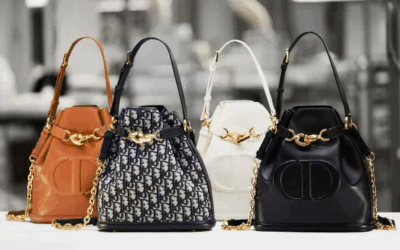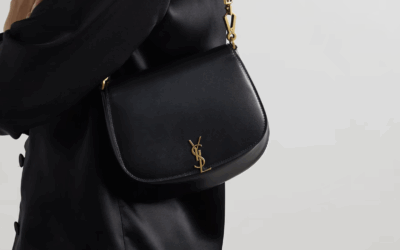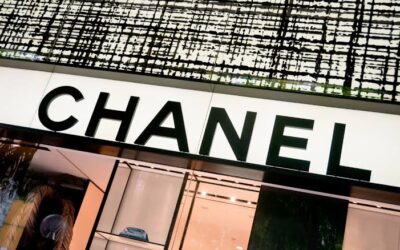 Embark on a Cosmic Journey Through the Paradoxes of Luxury and Dupes
Embark on a Cosmic Journey Through the Paradoxes of Luxury and Dupes
Who Owns Luxury? CHANEL’s Struggle to Police Resale
by Thea Elle | September 1, 2025 | Luxury Industrial Complex
The thrill of unboxing a vintage CHANEL 2.55 from The RealReal is unmatched: the lambskin soft, the chain strap gleaming, the aura unmistakable. For a moment, it feels like the holy grail — a guilt-free indulgence that whispers chic without shouting excess.
But then comes the hangover. Because in CHANEL’s world, “timeless” doesn’t mean “resellable.” The house views resale as a threat to its empire, a crack in the exclusivity veneer. And that flap bag in your hands suddenly comes with an aftertaste of subpoenas and cease-and-desist letters.

Couture in the Courtroom
Buying a CHANEL bag may feel like a milestone, but don’t confuse ownership with authorship. CHANEL has trademarked practically everything in its orbit — from 2.55 to 5, from packaging to patterns. It’s less about bags and more about building an ironclad language that belongs to them, and only them.

The maison’s approach is relentless. Trademarks are wielded not just as shields against counterfeiters, but as weapons to control resale, references, and cultural shorthand. CHANEL doesn’t just sell handbags — it sells permission slips to participate in its mythology, one trademark filing at a time.
When Virtue Collided With Vanity
The RealReal built a business on the idea that secondhand luxury could be chic, safe, and sustainable. A CHANEL flap bag wasn’t just resale, it was recycling with a side of status. “100 percent authentic” became the rallying cry, making fashion feel both aspirational and altruistic.
Explore New Arrivals Here

CHANEL was unconvinced. In 2018, the maison filed suit, charging The RealReal with selling counterfeits, misleading shoppers about a connection to the brand, and overreaching by authenticating its bags. To CHANEL, the idea that anyone outside Rue Cambon could certify CHANEL was not just wrong. It was heresy.

Fashion’s Never-Ending Trial Season
While TikTok obsessed over “old money” aesthetics, CHANEL and The RealReal were busy proving that the most enduring trend is litigation. Since 2018, their lawsuit has slogged through federal court, a slow-burning drama that has outlasted multiple handbag fads. Forget the runway; this is a stage where the costumes are black robes and the accessories are thick legal binders.
CHANEL’s central claims—trademark counterfeiting and false advertising—have survived early challenges, keeping the stakes high. The RealReal insists its business is legitimate under the first-sale doctrine, a legal protection for reselling goods one already owns. CHANEL counters that seven bags were counterfeit, and that The RealReal’s marketing misled buyers into thinking it had a direct pipeline to Rue Cambon. The question isn’t just about authenticity; it’s about whether any entity outside CHANEL can ever claim the authority to authenticate CHANEL.
With the trial still pending, the case has become a masterclass in stalemate. Settlement remains elusive, and neither side seems ready to bow out gracefully. Meanwhile, resale platforms across the globe are glued to the proceedings. For them, the outcome could determine whether authentication remains a shared industry standard—or whether CHANEL rewrites the rules, one lawsuit at a time
Shopping With a Side of Subpoena
So here you are, trying to buy a CHANEL flap bag without liquidating your retirement fund, only to realize you’ve stumbled into the middle of fashion’s nastiest divorce. On one side, CHANEL guards its trademarks like family heirlooms. On the other hand, resale platforms insist they’re giving luxury a second life. And in between? You—the buyer who never asked to become collateral in a brand war.
The law does give you some cover. Under the first-sale doctrine, your rights as an owner are pretty straightforward: if it’s real and you bought it, you can resell it. CHANEL isn’t trying to stop you from passing your flap down to your niece or listing it on a resale app. Instead, the fight is over how platforms present themselves, whether they can claim expertise in authentication, and how liberally they can use the double C to market pre-owned goods.
For buyers, the result is a shopping experience that feels less carefree than it once did. You need more than an eye for quality leather—you need to know which sellers are trusted, which platforms are drawing CHANEL’s ire, and where the line is between marketing and misrepresentation. In short, secondhand shopping is no longer just a matter of taste. It’s a balancing act between personal style and brand politics.

A Future Written in Code and Couture
The resale boom may feel unstoppable, but CHANEL is already plotting how to tame it. Its weapon of choice? Technology. Expect digital passports, intricate tracking systems, and blockchain-backed certificates that ensure every flap bag carries an unbroken chain of authenticity. In the near future, your CHANEL won’t just be quilted — it’ll be coded.
For the maison, this is about more than fighting fakes. It’s about rewriting the power dynamic of resale. With a digital infrastructure in place, CHANEL could anoint “official” resale channels or build its own marketplace, where the brand controls not just authenticity but also pricing. Suddenly, secondhand feels less like a thrift win and more like couture with conditions.
Meanwhile, the wider resale market is thriving, with platforms embracing tech and sustainability narratives. Yet CHANEL’s likely future makes one thing clear: the brand will not share the steering wheel. If you imagined resale as the great democratizer of luxury, prepare for a reality check — one with a distinctly French accent and a barcode.
Yours to Hold, Theirs to Define
You can swipe your card, tuck the receipt in your wallet, and sling that CHANEL over your shoulder. But don’t mistake it for full ownership. The lambskin might be yours, but the intellectual property, the cultural capital, and the right to define authenticity? Those belong squarely to CHANEL.
This is the heart of their battle with The RealReal: not whether a bag is genuine, but who has the authority to say so. It’s less about resale as commerce and more about resale as narrative control. And as brands increasingly eye the booming secondhand market, they’re less inclined to let platforms, or shoppers, define the terms.
So wear your CHANEL with pride, but know the unspoken rules. You may think it’s just a bag — but for CHANEL, it’s empire, image, and intellectual property stitched into one. And empires, as history shows, don’t give up ground easily.




0 Comments